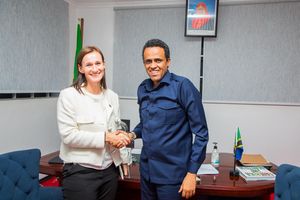STRAIGHT TALK: Reflections on relevance of Uhuru Torch races

Ally Saleh
It has been many years since Tanzania introduced the Uhuru Torch races.
One can hardly remember any one time the torch did not crisscross this huge land of Tanzania and its thousands of villages. It has visited to nearly each and every ward, district and region before arriving at its final destination where it is to be extinguished.
However, once it is extinguished, just a few months later there is much fanfare as it is re-lit for yet another round of race.
The Torch, or famously as ‘Mwenge’ has developed into a national ritual or rather some sort of a cult that separates its believers from non-believers. It signifies a huge rift of ideological differences.
As such as much as we would like to believe, the truth is Mwenge no longer unites Tanzanians. This is based on the political divide that exists in the country. People hold opposing ideologies. This does not mean they are enemies, far from it, but each side holds convictions it believes are better towards building a single, strong and united nation.
To some Tanzanians, the Mwenge has lost its original vision and purpose. Members of the Constitutional Review Commission under Mzee Warioba will recall how a number of people said ‘no’ to the symbol. To them, it no longer mattered in their lives.
They opined that they found no more zeal in the races as during the early years of its establishment.
This thinking has also been expressed in Parliament. Those opposing it argue that it is a costly enterprise, and they raise moral concerns with some alleging that the event normally fuels spread of HIV and sexually transmitted infections. Above all, they argue that the original meaning has been diluted by too much politics involved in the races. They allege that the whole matter has been turned into a CCM propaganda tool. They fear that it has been turned into a tool of galvanising CCM’s control over the masses, especially in rural areas.
The race planning, they say, is largely led by the CCM machinery. The rest participate as invitees, thus are left with the feeling of lacking ownership of what was supposed to be a national symbol.
The big question remains, what can be done to revive the original purpose, to make it the national pride just as it was when it was first perched on Mt Kilimanjaro?
Even as the races are conducted annually, there is no evidence to show, for instance, that it has fought prejudices, colour bar, inequality and the disease eating the very fabric of our society, that is, corruption.
If we truly value this symbol and want it to unite us, then we must go back to the original vision and revive it. Otherwise the Torch will resume next year for another run and only to remain empty but eroding people’s trust and confidence in it.
Mwalimu Julius Nyerere once said that the country’s leadership will one day be taken over by a party other than CCM. Ownership of tools dubbed as national symbols must be placed in the hands of all Tanzanians instead of just one party. Otherwise, such a transfer of power could see the end of the Uhuru Torch races.
Politicisation should be limited in matters of national unity.




